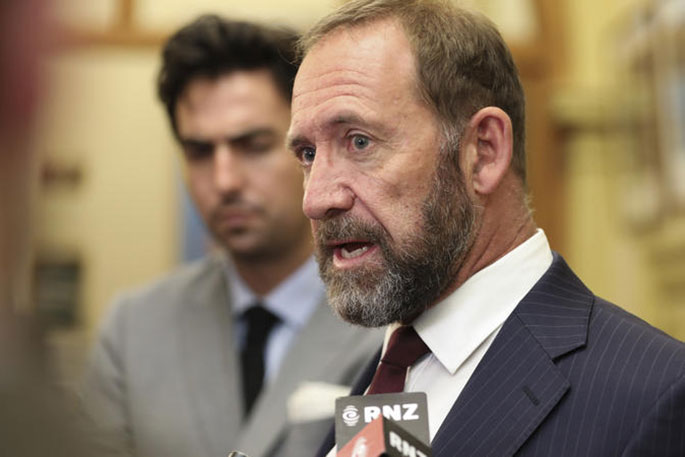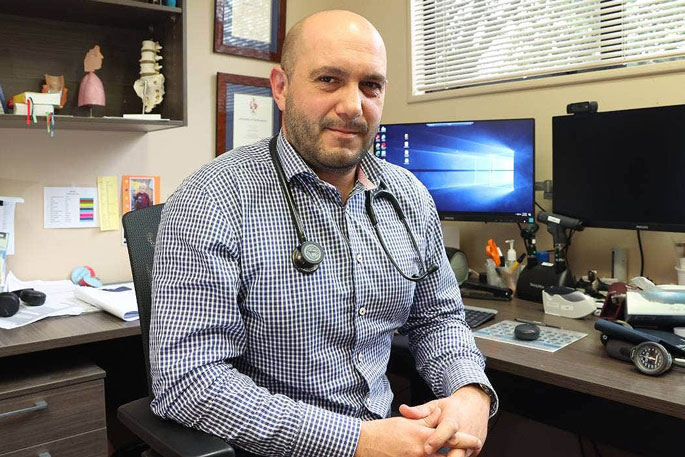Genuinely afraid, stressed, tired and facing 'constant extra demand”.
That's how one general practitioner describes the state of New Zealand's health system right now.
Speaking at his Fifth Avenue Family Practice in Tauranga, Dr Luke Bradford says that on Friday between 12 doctors, two nurses and phone consultations, they saw more than 500 patients.
Before Stuff arrived at 11.30am he had already seen 13 patients himself.
'Then another 13, then I'm the acute doctor this evening. Then I'll work over the weekend. That's what we do.”
None of this included dealing with the 65 test results he'd received that morning, or the 45 items sitting in his 'task bar”.
When asked about Health Minister Andrew Little's comments just a few weeks earlier, which acknowledged the pressure on hospitals, but described the overall system as 'coping”, there's a long pause.
'The system, as much as it's able, won't let people fall over,” he says.
'There's those terrible tragedies, but staff will do their damndest so when you're acutely unwell, they'll stand up. But we are creating a huge backlog.
'Staff in primary care and secondary care are genuinely afraid, stressed and tired, and there's this constant extra demand.”
Bradford is well aware of how politicised the issue is at present, and keen to stress he is speaking in his capacity as a GP, and pragmatic about arguments about whether Little deems the situation a crisis, or not.
'If you say publicly the health system isn't coping, you'll create mass panic.”
 Andrew Little.
Andrew Little.
Bradford is pragmatic too about the wider health system, and agrees it's facing something of a perfect storm at present of Covid, delays in other treatments caused by Covid and the winter flu season – which will pass.
Staff shortages are biting too.
'We've got a lot of people off because of respiratory illnesses and it's really difficult to recruit, same as every occupation at the moment. We've got massive nurse shortages in primary care, more so than in secondary care, because in primary care there's a perceived pay disparity.”
He says at his practice they will need to recruit two additional doctors this year, something that in the past would be done easily.
'For the first time ever we need two by the end of the year, and I don't know where I'm going to find them.”
He has mixed views of the sweeping reforms the sector is undergoing, though he is entirely supportive of the need for change and admits reform is 'a really good long term aim”.
'I think the acknowledgement and intention that we really are failing in Māori health especially, (and the) genuine intention that that needs to change will help society as a whole.
'But quite clearly primary care has been left, ‘we'll come to you later and we want to make sure hospitals are OK' - there's some sense in that."
Bradford's concern with the reforms is that he simply does not know what they will mean for general practice yet.
'The front line would like to hear more about how the reforms are going to come to their assistance and their patients' assistance than how many nice ceremonies we're having and flowery words.
'The purpose of the authority isn't clear.
'[There is] Nothing yet in the health reforms for how it will help general practice, and general practice is tired and stressed and anxious that it's been expected to manage.”
His pragmatic streak shows again when he admits that throwing money at the health sector isn't the sole solution either.
'It would be a bottomless pit, and we're a country of five million.”
How existing cash is used is one area he'd like to see looked at.
He says the general practice model is run 'off an old funding model designed 20, 30 years ago that just is not fit for service, doesn't acknowledge the chronic conditions, the equity needs, that old ‘I get paid to see you' model is gone”.
Bradford would like to see a funding review, and a national debate about the health of the health sector.
'There needs to be structural change, we've got to move to an integrated, equitable outcomes based model.”
Acknowledgement that staff are tired and stressed would be welcome too, he says, 'something to at least acknowledge it”.
'We need a joined up view of staffing needs and to accept it's [shortages] across the system. We need to start acknowledging our nursing staff the same as hospital nursing staff in terms of pay, that would make a huge difference, and we need to acknowledge that general practice is changing its model of care.”
He also says the reforms are having one unintended consequence on primary care.
'It's hard to start a practice because we're not sure what the model of the future looks like.
'We're businesses, more than 1000 businesses, and so Kiwis and expats are entrepreneurial, but it's difficult in the current climate to say I'll take this punt, because we're not seeing the certainty about the future.”



0 comments
Leave a Comment
You must be logged in to make a comment.